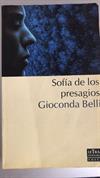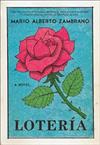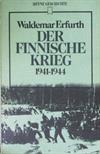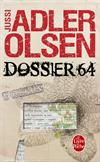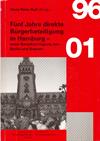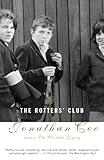
Midnight's Children
3 journalers for this copy...
A fantastic and unique novel that I would recommend to anyone.
 Received in today's mail from john-g in Bolton, England, along with a bonus book I've been wanting but hadn't expected to receive! Thanks so much, John -- I was delighted to receive both these books.
Received in today's mail from john-g in Bolton, England, along with a bonus book I've been wanting but hadn't expected to receive! Thanks so much, John -- I was delighted to receive both these books.
Journal Entry 3 by goatgrrl from New Westminster, British Columbia Canada on Tuesday, January 4, 2005
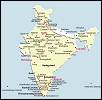 Midnight's Children does a spectacular job of illustrating how history becomes more meaningful when viewed through the lens of individual experience. During the course of the novel, described by one reviewer as a "major epic of modern India", protagonist Saleem Sinai and his ancestors witness or participate in nearly every historical event in India between 1915 and 1978: the 1919 massacre at Amritsar, the rise to prominence of the Muslim League in the early 1940s, Indian independence, partition and the creation of Pakistan, Mahatma Gandhi's 1948 assassination, the 1956 Bombay language riots, the Pakistani coup of 1958, the Indo-Pakistan war of 1965, the Chinese invasion, the 1971 war between India and Pakistan over East Pakistan/Bangladesh, and the rise of Indira Gandhi. The timing of these events isn't always accurate (Rushdie has said he was simply interested in exploring the ways "we remake the past to suit our present purposes, using memory as our tool"), and you can never be sure whether a character is entirely fictional, or borrowed -- even in part -- from history. Nonetheless, the novel is a highly engaging portal into the collective experience of 20th century India -- albeit from the point of view of an educated, upper-class emigre.
Midnight's Children does a spectacular job of illustrating how history becomes more meaningful when viewed through the lens of individual experience. During the course of the novel, described by one reviewer as a "major epic of modern India", protagonist Saleem Sinai and his ancestors witness or participate in nearly every historical event in India between 1915 and 1978: the 1919 massacre at Amritsar, the rise to prominence of the Muslim League in the early 1940s, Indian independence, partition and the creation of Pakistan, Mahatma Gandhi's 1948 assassination, the 1956 Bombay language riots, the Pakistani coup of 1958, the Indo-Pakistan war of 1965, the Chinese invasion, the 1971 war between India and Pakistan over East Pakistan/Bangladesh, and the rise of Indira Gandhi. The timing of these events isn't always accurate (Rushdie has said he was simply interested in exploring the ways "we remake the past to suit our present purposes, using memory as our tool"), and you can never be sure whether a character is entirely fictional, or borrowed -- even in part -- from history. Nonetheless, the novel is a highly engaging portal into the collective experience of 20th century India -- albeit from the point of view of an educated, upper-class emigre.The following are some notes I made while reading Midnight's Children, in an effort to keep track of Saleem's ancestry, the mystery around his birth, and the historical events covered in Midnight's Children.
Journal Entry 4 by goatgrrl from New Westminster, British Columbia Canada on Thursday, January 6, 2005
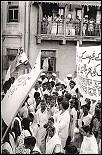 Book I
Book IProtagonist Saleem Sinai is one of 'midnight's children', "mysteriously handcuffed to history" by being born on August 15, 1947, India's first day of independence (author Rushdie was himself born in Bombay the same year). The novel begins in 1978 when Saleem is 31, but flashes back immediately to the story of Saleem's Muslim grandfather, Dr. Aadam Aziz (born in Srinagar, Kashmir), a German-trained physician who -- following his marriage in Kashmir to the wealthy Naseem Ghani -- takes up residence and a medical practice in the city of Agra. There he lives with Naseem -- who for her humourless piety comes to be known as the "Reverend Mother" -- raising Saleem's mother and his four aunts and uncles: Alia, Mumtaz (who first marries Nadir Khan of the anti-partition "Free Islam Convocation"), Hanif (later a successful film director in Bombay), Mustapha (later a stuffy civil servant) and Emerald (who marries the pro-partition Major Zulfikar).
The question of Saleem's parentage is kept deliberately mysterious throughout Book I. In the fourth chapter ("Under the Carpet"), we learn that Saleem's mother is Mumtaz Aziz, who -- following her divorce from Nadir Khan -- married Ahmed Sinai and changed her own name to Amina Sinai. But just as that mystery is resolved, another is revealed. In 1947, as the British are preparing to leave India, Ahmed and Amina purchase the estate of departing colonial, William Methwold. Among their new neighbours are Methwold's servants, the jester and musician "Wee Willie Winkie" (whose real name is unknown) and his wife Vanita, who -- like the Sinais -- are expecting a baby. At midnight on August 15, both Amina Sinai and Vanita give birth to sons. Vanita dies during childbirth, and the midwife Mary Pereira -- wishing to please her radical boyfriend -- switches the two babies, condemning the son of wealthy parents to a life of poverty and vice versa. (Photo: Bombay, August 15, 1947)
Journal Entry 5 by goatgrrl from New Westminster, British Columbia Canada on Friday, January 7, 2005
 Book II
Book IIBook II begins in 1948, the first year of Saleem's life, with the assassination of Mahatma Gandhi by Nathuram Godse, a Hindu angry with Gandhi's efforts to reconcile Hindus and Muslims. Saleem grows up quickly in the first several chapters of Book II (among other things, this is when he first learns of his mother's ongoing association with Nadir Khan, now a leader of the Indian Communist Party), and it is in 1957, just after he turns ten years old, that he fully realizes the implications of his date of birth.
In "All-India Radio", Saleem discovers his ability to tune into the inner thoughts of his family members, classmates, and friends -- and to those of people farther afield. In "My Tenth Birthday", he places this gift into context: Saleem explains that 1,001 children came into the world between midnight and 1 a.m. on August 15th, 1947, each with an unusual ability (the closer to midnight the child's birth, the more miraculous his ability). Two of "midnight's children", Saleem and Shiva -- Vanita's baby with whom he was switched at birth -- were born on the exact stroke of midnight, and are thereby designated as leaders of the "Midnight's Children Conference" (MCC). Shiva has been given great skill in warfare, while Saleem has received insight into others' hearts and minds. From their first telepathic meeting, during which Shiva threatens to take control over the MCC, Shiva and Saleem become rivals.
The last part of Book II covers the period of the wars between India and Pakistan. This is also a period of great devastation for Saleem's family: his Uncle Hanif (the Bombay film director) commits suicide, and his grandfather Aadam Aziz dies at the temple of Sankara Acharya. In the aftermath of these deaths, Saleem's family move to Pakistan, where they are decimated by the 1965 Indo-Pakistan war. Book II concludes with a final glimpse into the future: "six years later ... there was another war".
Journal Entry 6 by goatgrrl from New Westminster, British Columbia Canada on Monday, January 10, 2005
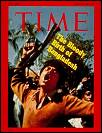 BOOK III
BOOK IIIAs Book III begins, it is 1971 and Saleem has become both a citizen of Pakistan and a member of the Pakistani army. He is known as "the buddha" (old man) -- old before his time. Saleem can't remember anything about his past, though he is still carrying his grandparents' silver spittoon. His role in the army is as a "man-dog" -- a tracker who has become famous for being able to scent enemy armaments and the emotions of others. Saleem's colleagues gossip shamelessly about the mystery of his past.
Flown into Dacca in March 1971, Saleem -- he later confesses to Padma -- was personally responsible for leading Pakistani troops to the lair of Sheikh Mujib-ur-Rahman. He describes how he and the other soldiers "watched in silence as our boys ... held Pakistan together by turning flame-throwers machine-guns hand-grenades on the city slums" (p. 357) (a description of the 1971 genocide in Bangladesh). Saleem and three companions flee from wartorn Dacca in a daze, moving southward until they enter The Sundarbans, a mangrove forest in East Pakistan/Bangladesh. There they experience a number of magical occurrences, and Saleem gets bitten in the heel by a serpent, causing him to remember everything from his past except his name.
Journal Entry 7 by goatgrrl from New Westminster, British Columbia Canada on Wednesday, January 12, 2005
 Midnight's Children is heavily allegorical, and certain characters seem primarily intended to symbolize certain themes or moments in history (e.g. Tai, the ageless boatman in Srinagar who finally meets his end protecting his Kashmir valley in 1947; Ilse Lubin, Dr. Aziz' German friend who drowns in 1919 in the spot in Lake Dal where "certain white women come to die"; Mian "the Hummingbird" Abdullah, creator of the anti-partition Free Islam Convocation; departing colonial William Methwold, descended from a 17th century East Indian Company officer, who sells his home to Ahmed and Aminda Sinai only after extracting their promise that nothing will be changed; and Evie Lilith Burns, Saleem's childhood nemesis who back home in the USA goes to reform school for stabbing an old woman).
Midnight's Children is heavily allegorical, and certain characters seem primarily intended to symbolize certain themes or moments in history (e.g. Tai, the ageless boatman in Srinagar who finally meets his end protecting his Kashmir valley in 1947; Ilse Lubin, Dr. Aziz' German friend who drowns in 1919 in the spot in Lake Dal where "certain white women come to die"; Mian "the Hummingbird" Abdullah, creator of the anti-partition Free Islam Convocation; departing colonial William Methwold, descended from a 17th century East Indian Company officer, who sells his home to Ahmed and Aminda Sinai only after extracting their promise that nothing will be changed; and Evie Lilith Burns, Saleem's childhood nemesis who back home in the USA goes to reform school for stabbing an old woman). Midnight's Children was the winner of the 1981 Booker Prize (twelve years later, on the occasion of the Booker's 25th anniversary, it was also declared the "Booker of Bookers" -- the best of all previous winners -- by a panel of three former judges). In 2003 the book was produced as a stage play by the Royal Shakespeare Company, and in the same year was the subject of a month-long Humanities festival at Columbia University. Midnight's Children has been the subject of numerous academic papers, some samples of which are available online:
- Saleem's Quest for Origin: Authenticity and Nation in Midnight's Children
- "Born Again!" -- Double Parentage in Midnight's Children
- Magical Realism in Relation to the Post-Colonial and Midnight's Children
Other novels set in Bombay during the same era as Midnight's Children: Rohinton Mistry's 1996 A Fine Balance (which covers some of the same painful 1970s history); and Manil Suri's 2001 The Death of Vishnu.
Journal Entry 8 by goatgrrl from New Westminster, British Columbia Canada on Friday, January 14, 2005
 I finished Midnight's Children this evening -- what a truly remarkable book. I'll be mailing it to Fellraven in Redditch, England this afternoon. Thanks again, john-g, for making this book available to me in the first place -- I'm very glad to have read it! And best wishes to both you and Fellraven from New Westminster, British Columbia. (Photo: Reiffel Bird Sanctuary -- near my home, January 2005)
I finished Midnight's Children this evening -- what a truly remarkable book. I'll be mailing it to Fellraven in Redditch, England this afternoon. Thanks again, john-g, for making this book available to me in the first place -- I'm very glad to have read it! And best wishes to both you and Fellraven from New Westminster, British Columbia. (Photo: Reiffel Bird Sanctuary -- near my home, January 2005)
Journal Entry 9 by Fellraven from Redditch, Worcestershire United Kingdom on Tuesday, January 25, 2005
A very kind RABCK received this morning from goatgrrl, along with one of those nice little Canada maple leaf pins so popular with Americans travelling abroad .... :)
Many thanks!
Many thanks!
